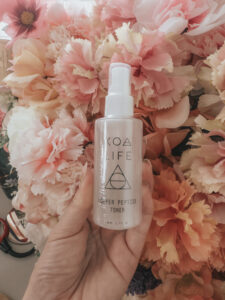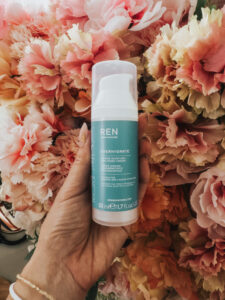Water is life. It’s a simple statement but one that carries profound truth. Our bodies are composed of about 60% water, making it an essential component for our survival and well-being. Despite its importance, staying hydrated is often overlooked in our busy lives.
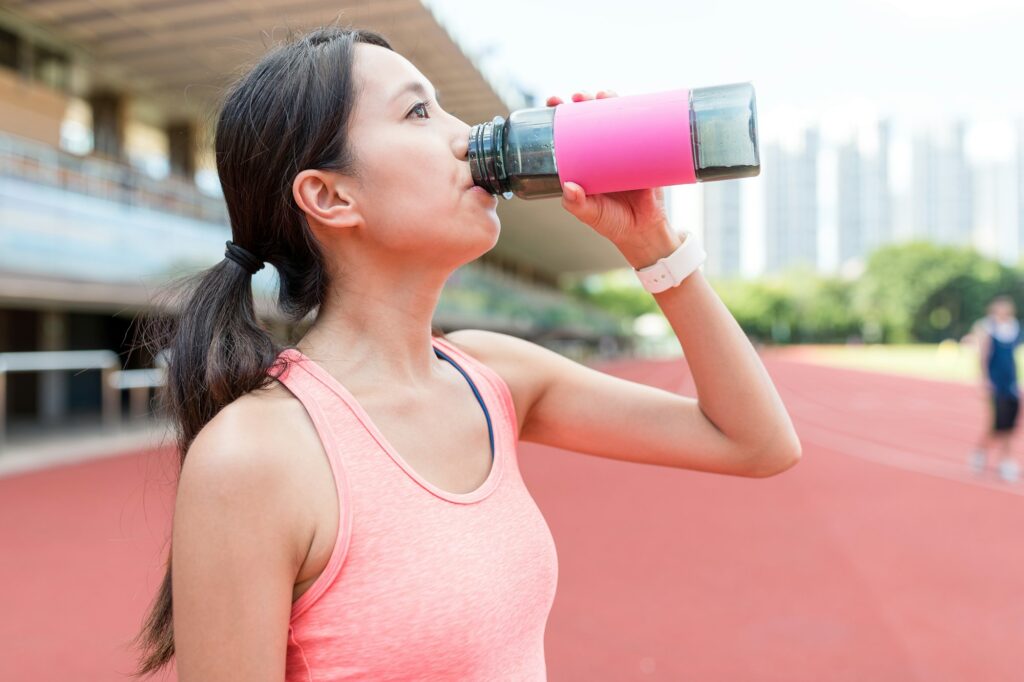
Why Hydration Matters
1. Maintains Bodily Functions
Every cell, tissue, and organ in your body requires water to function correctly. Water is involved in numerous bodily functions, including:
- Regulating Body Temperature: Through sweating and respiration.
- Lubricating Joints: Keeping joints flexible and reducing friction.
- Transporting Nutrients and Oxygen: Throughout the body via the bloodstream.
- Removing Waste: Facilitating kidney function and the excretion of urine.
- Supporting Digestion: Aiding in the breakdown of food and nutrient absorption.
2. Enhances Physical Performance
Dehydration can significantly impact your physical performance. Even a small loss of fluid, around 2%, can lead to noticeable fatigue, reduced endurance, increased perceived effort, and decreased motivation. Staying hydrated helps maintain strength, power, and overall performance, particularly during exercise or strenuous activities.
3. Boosts Cognitive Function
Your brain is highly sensitive to changes in hydration levels. Dehydration can impair concentration, alertness, and short-term memory. Studies have shown that even mild dehydration can affect mood and cognitive functions, leading to increased feelings of anxiety and fatigue.
4. Promotes Healthy Skin
Water is crucial for maintaining skin hydration and elasticity. Adequate hydration helps prevent dryness, flakiness, and the appearance of fine lines and wrinkles. Drinking enough water can give your skin a natural, healthy glow.
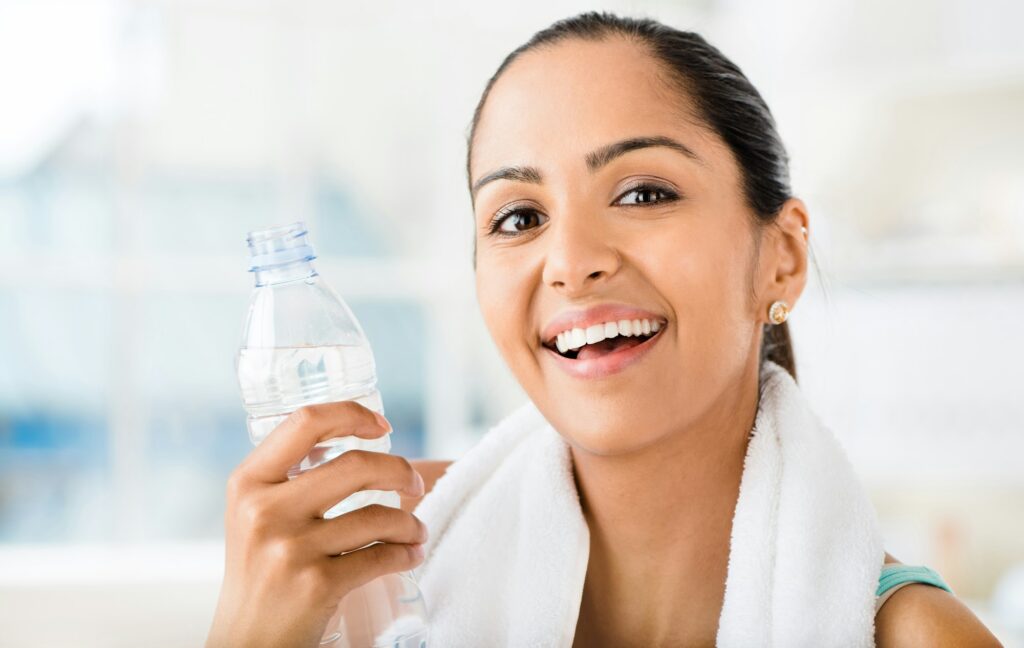
5. Aids in Weight Management
Drinking water can aid in weight management in several ways. It can help control hunger, as sometimes our bodies can mistake thirst for hunger. Drinking water before meals can also promote a feeling of fullness, leading to reduced calorie intake.
6. Prevents Health Issues
Chronic dehydration can lead to various health problems such as kidney stones, urinary tract infections, and constipation. Long-term dehydration may also contribute to more severe conditions like chronic kidney disease and heatstroke.
How Much Water Do You Need?
The amount of water you need can vary based on several factors, including age, gender, activity level, and climate. A common guideline is the “8×8” rule: drink eight 8-ounce glasses of water a day, which equals about 2 liters or half a gallon. However, individual needs can vary.
The Mayo Clinic suggests a daily water intake of about 3.7 liters (125 ounces) for men and 2.7 liters (91 ounces) for women, including water from all beverages and foods.
Signs of Dehydration
It’s essential to recognize the signs of dehydration to take action promptly. Symptoms include:
- Thirst
- Dry mouth and swollen tongue
- Fatigue and confusion
- Dizziness or lightheadedness
- Dark yellow urine
- Less frequent urination
- Dry, cool skin
- Headache
Tips for Staying Hydrated
Now that we understand the importance of hydration, let’s look at practical ways to ensure you’re getting enough water daily.
1. Carry a Water Bottle
One of the simplest ways to stay hydrated is to carry a water bottle with you wherever you go. This serves as a constant reminder to drink water and makes it easy to take sips throughout the day. Opt for a reusable water bottle to be environmentally friendly.

Hydro Flask Stainless Steel Water Bottle
- Flex Cap and Double-Wall Vacuum Insulation
2. Set Reminders
In our busy lives, it’s easy to forget to drink water. Setting reminders on your phone or using hydration apps can help you remember to take regular sips. Some apps even track your intake and remind you when it’s time to drink more.
3. Infuse Your Water
If plain water doesn’t excite you, try infusing it with fruits, vegetables, and herbs. Adding slices of lemon, cucumber, or berries can make your water more appealing and add a hint of flavor. Mint, basil, and ginger are great herbs to experiment with as well.
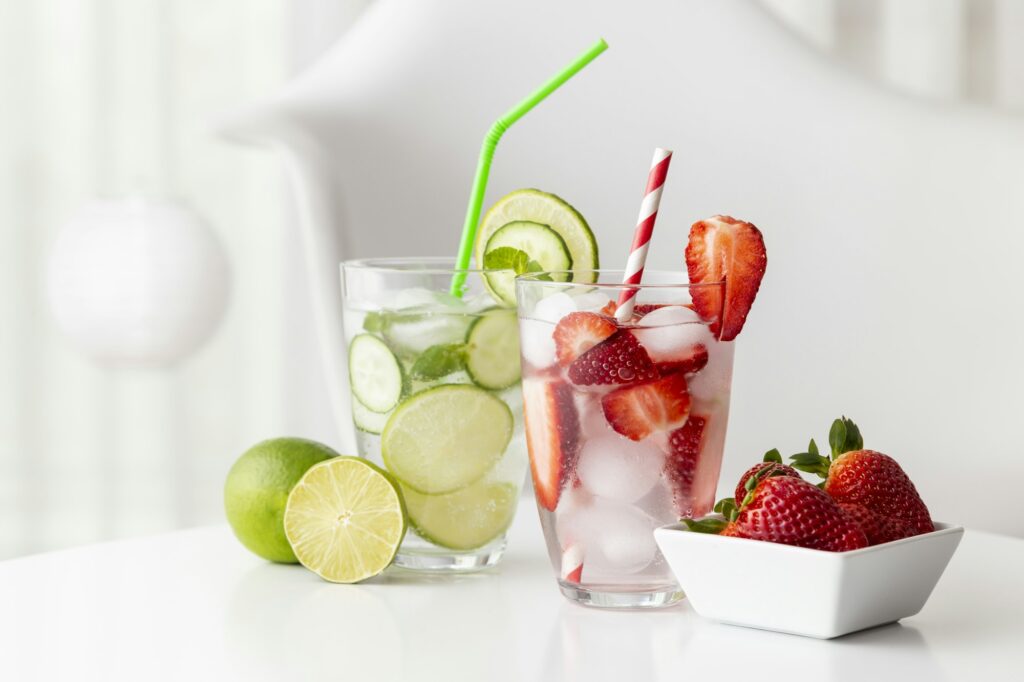
4. Eat Water-Rich Foods
Incorporating water-rich foods into your diet is an excellent way to boost hydration. Foods like cucumbers, watermelon, strawberries, and lettuce have high water content and can contribute to your daily hydration needs.
5. Drink Water Before Meals
Drinking a glass of water before meals can help ensure you’re staying hydrated and may also aid in portion control. This practice can help you feel fuller and prevent overeating.
6. Monitor Your Urine
Monitoring the color of your urine is a practical way to gauge your hydration levels. Pale yellow or clear urine typically indicates proper hydration, while dark yellow or amber suggests you need to drink more water.
7. Start and End Your Day with Water
Make it a habit to drink a glass of water first thing in the morning and right before bed. This helps kickstart your hydration for the day and ensures you’re not dehydrated overnight.
8. Keep Track of Your Intake
Keeping a log of your water intake can help you stay accountable. Whether you use a journal, an app, or a simple tally on a notepad, tracking how much water you consume can be a helpful tool in maintaining proper hydration.
We love Waterminder.

Special Considerations
1. During Exercise
When exercising, you lose more water through sweat, so it’s essential to drink before, during, and after your workout. For intense or long-duration exercise, consider drinks with electrolytes to replenish lost minerals.
2. In Hot Climates
Hot weather increases your body’s need for water as you lose more through sweating. In hot climates, make sure to drink water regularly, even if you don’t feel thirsty. Wearing light, breathable clothing can also help reduce fluid loss.
3. During Illness
When you’re sick, especially with a fever, vomiting, or diarrhea, your body loses more fluids. Staying hydrated during illness is crucial for recovery. Oral rehydration solutions can be particularly effective in replacing lost fluids and electrolytes.
Hydration Myths Debunked
Myth 1: You Need to Drink 8 Glasses of Water a Day
While the “8×8” rule is a reasonable guideline, hydration needs vary from person to person. Factors such as activity level, climate, and diet can influence how much water you need. Listen to your body and drink when you’re thirsty.
Myth 2: Caffeinated Drinks Dehydrate You
While caffeine has a mild diuretic effect, the fluid in caffeinated drinks still contributes to your overall hydration. Moderate consumption of coffee or tea can be part of a healthy hydration strategy.
Myth 3: Clear Urine is the Only Sign of Proper Hydration
While clear urine can indicate good hydration, it’s not the only sign. Regularly monitoring your thirst, skin condition, and energy levels are also important indicators.
Conclusion
Staying hydrated is fundamental to maintaining good health and well-being. It supports a myriad of bodily functions, enhances physical and cognitive performance, and helps prevent a range of health issues. By incorporating simple habits such as carrying a water bottle, eating water-rich foods, and setting reminders, you can ensure you’re getting enough water throughout the day.
Remember, hydration needs can vary, so it’s essential to listen to your body and adjust your water intake based on your individual requirements. By making hydration a priority, you’re taking a vital step towards a healthier, more vibrant life. Cheers to staying hydrated!




